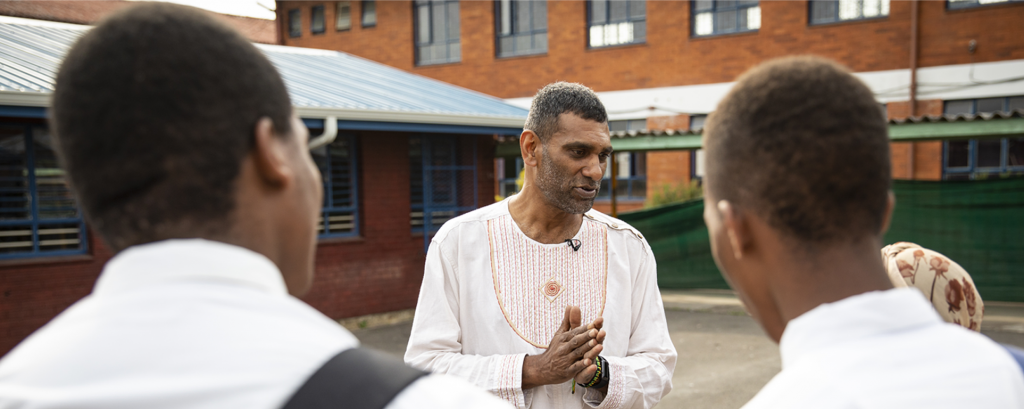If Verwoerd were alive today, the terrible truth is that he would be happy to see how his legacy is still driving inequality and causing suffering for the majority of South Africa’s children.
It was as a 15-year-old during the national student uprisings in 1980 that my eyes were first fully opened to apartheid in South Africa. The injustice of this racist system affected all parts of our society, but it was its impact on education that mobilised thousands of young South Africans like me to fight it. We were inspired by the 1976 historic Soweto uprising that championed the same cause.
As most of us know in South Africa, the man responsible for this horrific legacy is Hendrik Verwoerd – commonly known as the “architect” of South Africa’s racist system of apartheid. His very image invokes painful memories. So why then did Amnesty International South Africa choose to use his smiling face for our right to quality education campaign, #SignTheSmileOff?
With this campaign we do not seek to offend or retraumatise those of us who lived during that horrendous period of our history. We do, however, wish to remind people that the legacy of that painful history is still very much with us.
The research that we and other organisations have conducted over the years has revealed a dire picture of education, which is a major contributor to the continuing high levels of poverty and inequality in South Africa. The residual effects of the Bantu Education Act, which Verwoerd designed, are still prevalent and are impacting on successive generations of young people.
If Verwoerd were alive today, the terrible truth is that he would be happy to see how his legacy is still driving inequality and causing suffering for the majority of South Africa’s children. That is exactly why we made the hard choice of putting up Verwoerd’s face at the start of this campaign.
The hope was that Verwoerd’s face would invoke outrage by the fact that many young people are still experiencing the pain of disadvantage. Our education system today still ends up favouring the rich and middle classes while under-privileged and rural communities continue to be marginalised.
We should be outraged at the fact that 46% of schools lack basic sanitation and 17% continue to use extremely unsafe pit latrines. We should be horrified that 78% of Grade 4 learners cannot read comprehensively in any language and 61% of Grade 5 learners cannot add or subtract.
We cannot wait another 25 years when the future of so many children is at stake. Our goal with this campaign was to provoke a sense of outrage and urgency about the situation and the critical need to prioritise the state of education in this country.
The response to the campaign – both positive and negative – speaks to how visceral the apartheid legacy still is, and it is vital that we come together to fully redress the results of the past racially discriminatory laws and practices.
Since the fall of the apartheid regime, successive governments have made important strides in education, particularly with regards to achieving near-universal access. However, among the structural inequalities which persist, one of the most glaring is the fact that millions of students do not enjoy their right to quality basic education. The issues around numeracy and reading can be resolved if children are given the resources they require including functioning basic infrastructure, text books and libraries.
Yet while this inequality needs to be fully addressed, I am extremely disappointed to see that the Department of Education has outright refused to accept the basic facts we have found in our research.
We are inviting the government to meet with us and other organisations and experts working on education and human rights to come up with viable and sustainable solutions needed to tackle the crisis.
Our vision is simple. All South African children have the right to quality, primary and secondary education under both domestic and international law. Being able to read and do simple Math equips children with the tools for a better future.
Over the next few days, our campaign will feature the faces of young South African children, with the appeal to support our call to ensure that all children in our country can smile because they can see the potential of a future through education.
The hopes and dreams embodied in their faces should be the only image we associate with South Africa’s education system going forward. It’s up to the government to make that happen.
– Naidoo is secretary general of Amnesty International.
This article was originally published on News24


